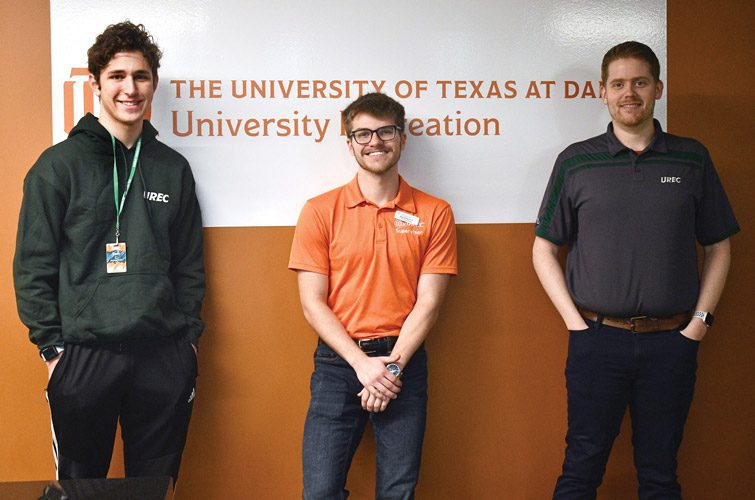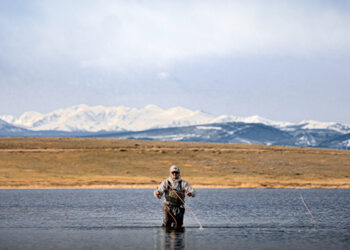Recreation often houses a large percentage of student staff on most campuses. Therefore, it’s important to have a thorough onboarding process, an open line of communication and an understanding of how to best support them.
In order for a student to be hired at the University of Texas at Dallas (UT Dallas) University Recreation, they must first attend a hiring session where they are given a general overview of the department, and specific job duties and requirements before their application is considered.
“Once the interview process is complete and staff is hired, they begin orientation where they fill out paperwork and receive information about our department and policies,” said Greg Melton, the assistant director of Satellite Facilities at UT Dallas. “With my staff, I give them a one-hour tour and overview of the facility, our policies, emergency procedures and expectations. This is to hit the most important things they need to know and give them context for further training.”
Additional training at UT Dallas includes a training checklist they must complete with student supervisors during their first few shifts, along with eight hours of shadow training.
Shadow training is also implemented at Vanderbilt University Recreation where a “Student Led, Student Run” philosophy is believed, meaning teams of students are responsible for both hiring and training.
“Once a student is hired, we ensure they are in compliance with work requirements by completing multiple trainings, including CPR and first aid, bloodborne pathogen, protection of minors, and payment card industry compliance,” said Cassidy McCoy, a graduate assistant for Student Development at Vanderbilt. “The student then begins the onboarding process by going through in-person training with active student team members.”
EXTRA CREDIT: How you might be failing in training employees.
Because Vanderbilt hires a majority of students to start at the beginning of each fall semester, training is completed the week before school begins. This gives students the opportunity to engage with fellow team members, learn about procedures and protocols, shadow shifts, and eventually work shifts on their own. If a student begins work outside the start of the semester, they will be trained in a one-on-one setting with students from the training team.
Once onboarding is completed, it’s important to make sure student staff have the resources they need to fulfill their role, as well as an open line of communication with supervisors for continuous feedback.
“We meet with our students in an All Team Meeting once a week to give leadership the opportunity to talk about any changes and upcoming major events, as well as give feedback,” said McCoy. “Additionally, this gives student team members an opportunity to give leadership feedback, to ask questions and to ask for resources.”

At UT Dallas, all work stations have both quick and in-depth emergency procedure references, job tasks and checklists. Each station is also stocked with first aid supplies, cleaning materials, an employee handbook, the discipline policy and professional staff contact information.
“I make it known to my student staff that I have an open-door policy if they need anything,” said Melton. “And I train my student facility supervisors to be able to handle most situations on their own and know who to contact or where to find extra supplies if anything arises while I’m not in the facility.”
While being a staff member on your recreation team is a portion of the student’s time on campus, it’s not their prime concern. As a leader, you want to be conscientious of your student staff’s educational priorities through means of mentoring and providing support where you can.
EXTRA CREDIT: Here’s how the best mentors and mentees happen.
For Melton, communication is key, and it goes both ways. “I make sure my students know I understand their classes are their No.1 priority. And long as they communicate with me, I’m willing to work with them and be flexible,” said Melton.
Additionally, each semester Melton has students complete a self-evaluation based on job-related skills like communication, teamwork, decision-making, leadership and time management. “I then have a one-on-one meeting with each of them and emphasize the fact these are skills we hope to see them learn and improve upon in their experience working for University Recreation, and hopefully take with them to whatever they do after leaving us,” he said.
McCoy agreed being flexible and open to feedback is also imperative to supporting student staff. As the eyes and ears of your recreation center, they may see things differently and be able to provide fresh ideas for engaging other student visitors.
One suggestion McCoy provided to further support student staff is to create a comfortable space where they can step away from school and life and focus on work without the fear of making mistakes. She achieves this in her own team by:
- Training students well.
- Empowering them to admit mistakes.
- Teaching them how to learn from failure.
“One of our goals as professionals is to prepare our students for their professional experience,” said McCoy. “Be a partner in your student teams’ success. Have an open-door policy, be visible, know their names and interests, etc. Our students are not just numbers, they are the ‘anchor’ of our organization.”










